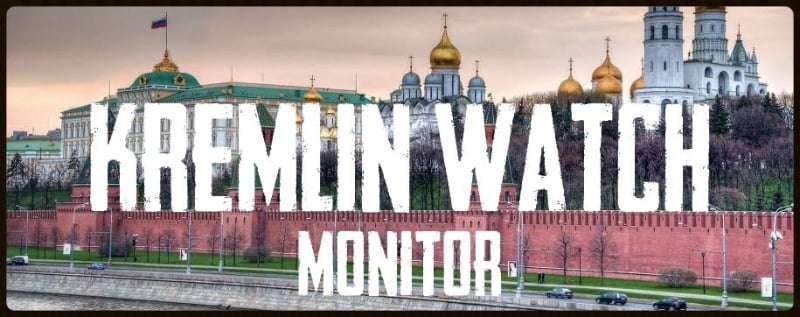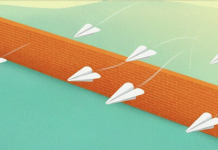STRATCOM SUMMIT 2017
How to Defend Allied Democracies against Hostile Influence and Disinformation Operations
Since Monday 15th until Friday, the STRATCOM SUMMIT organized by thy European Values think-tank is under way in Prague at the Czech Ministry of Interior. Altogether 330 participants are representing 29 countries over five days.
On Thursday, the key-note speech was given by the Prime Minister Bohuslav Sobotka, who stated that the EEAS East STRATCOM team “needs clear support from the High Representative Federica Mogherini.” He also highlighted that the unit should have its own budget and sufficient personal capacities.
Deputy Prime Minister Pavel Bělobrádek, also a key-note speaker, warned that we cannot give up fighting black propaganda, otherwise we would give up on freedom and democracy.


The STRATCOM SUMMIT aims to contribute to creating and improving existing policies to counter disinformation campaigns by bringing together experts from European countries and the USA and providing a platform for discussion and policy development.
Publications
Policy shift overview: How the Czech Republic became one of the European leaders in countering Russian disinformation
Over the last year, the Czech Republic has undergone a major policy shift on the topic of Russian disinformation. Many questions have been raised on how it has happened and what it practically means. This paper aims to bring a simplified overview of what has happened in this field in the Czech context since 2016. This Kremlin Watch Report is available in PDF.
A framework guide to tools for countering hostile foreign electoral interference
This brief Report aims to enumerate the tools that are nowadays used for hostile electoral interference and how they can be countered. It consists of 35 measures in 15 steps for enhancing the resilience of the democratic electoral process. The report by our Kremlin Watch Program is available in PDF.
Overview of countermeasures by the EU28 to the Kremlin’s subversion operations
How do the EU28 perceive and react to the threat of hostile influence and disinformation operations by the Russian Federation and its proxies? What are the recent trends and setbacks of political representations, state administrations, intelligence services and the non-governmental sector? Kremlin Watch Report available in PDF.
What are the 4 things Western democracies need to understand in order to stop hostile Kremlin meddling?
- Putin’s regime wants to call itself a superpower and to be respected as such
- Moscow is still dangerous
- Disinformation operations are a real and urgent threat to democracies worldwide
- We need to be resolute in defending our own countries
Read more in the article by Jakub Janda published by Observer.
Putin’s Champion Award
Our Expert Jury consisting of Jessikka Aro, Peter Kreko, Nerijus Maliukevičius, Anton Shekhovtsov, John Schindler and Michael Weiss regularly votes on the dangerousness of several candidates you can nominate via e-mail or Twitter.
The 10th Putin’s Champion Award Recipient is:
Republican Congressman Dana Rohrabacher
For allegedly meeting a former Russian intelligence officer to discuss a high-profile Russian money laundering case.

The Expert Jury ranked his Putin-supportive job with
4.5
(out of 5) mark.
The rating signals how much the recipient contributed to the interest of the Putin’s aggressive regime. It is calculated as an average of ratings assessed by the Expert Jury of this Award.
You can find more details about the award and the former recipients here.
Weekly Update on the Kremlin Disinformation Efforts
Romanian MEP: Boost the budget for combatting Russian disinformation
The EEAS East STRATCOM team tasked with countering disinformation campaigns currently operates with 10 employees and the budget of 200,000€. Romanian MEP Siegfried Mureşan (European People’s Party) proposed that the EU should invest €3 million next year for the project consisting of training specialised staff in the European Commission’s representations in Eastern Neighbourhood to monitor social networks and the media in order to combat disinformation.
Permanent congressional credentials for Sputnik declined
The Congressional Periodical Press Gallery committee denied Sputnik a permanent congressional press pass, which allows greater access to Capitol Hill. The Senate Periodical Press Gallery Director Justin Wilson stated that no state-sponsored news outlets are members of the gallery. According to the rules, the members must not “act as an agent for, or be employed by the Federal, or any State, local or foreign government or representatives thereof.”
Russian internet services banned in Ukraine
Based on a decree signed by Ukrainian President Petro Poroshenko, the social networks and other Russian web businesses like Yandex, Vkontakte or Odnoklassnikiare are going to be banned in Ukraine. The decree is a part of new sanctions against the Russian Federation for the annexation of Crimea and the war in Eastern Ukraine.
Focus: Emmanuel Macron hit by cyber-attacks
The new President of France was a victim of cyber-attacks during campaigning between the two electoral rounds. As a result of a computer hack, emails, contracts and accounting documents have been published on Pastebin and later also at the American 4Chan site and Wikileaks. According to the Macron campaign’s statement, some of the documents published were fake.
Based on public evidence, it is not possible to say who was the orchestrator of the attack. However, the NSA director Michael Rogers suggested during a Congress hearing that the agency pinned at least some electoral interference on Moscow.
The leaks did not practically influence the results of the election. The digital team of Mr Macron got praised for being more vigilant in defending their cybersecurity, but also for launching a counter-offensive against the hackers. Mounir Mahjoubi describes the details of the counter-actions in an interview with The Daily Beast.
Meanwhile, Edward Lucas warns in his article for CEPA that we should not cheer just yet. According to him, the hacks “met another Kremlin objective – spreading fear, uncertainty and doubt in the Western political system.”
Kremlin Watch Reading Suggestion
The new political campaigning; by D. Tambini, S. Labo, E. Goodman, M. Moore published by the LSE Media Policy Project
Full study here.
Increasing popularity and influence of social media have shaped our world in many ways in recent years and political campaigning is a field that has been affected a lot by this. Election communication in developed democratic countries has been subjected to regulation for a long time now, however, social media have changed the landscape significantly. This poses challenges for established institutions and principles of regulations for which they were not prepared. Whereas previously, traditional media played the most important role in political campaigning, social media have enabled the campaigners to target potential voters more directly and efficiently.
While this change has many positive consequences, it has many negative ones as well. Tech companies like Facebook or Twitter are not sufficiently regulated and do not operate under the same ethical standards as traditional media. Lack of transparency and supervision over campaign spending, spreading of fake news or so-called echo chambers are just a few examples of the currently debated negative impacts of social media on political campaigning. Therefore, the new environment needs new rules which would correspond with the age of social media.
Euroatlantic experts on disinformation warfare
Why do we have to perceive Russian intelligence services differently than we are used to in Europe? They are engaged in far more than collecting information. According to Mark Galeotti, “they advocate policies and carry out active measures routinely.” Read more in his article published by the NATO Review magazine.
If you have a few minutes to spare, watch the U.S. Senate Armed Services Committee hearing on US Cyber Command. Senator Martin Heinrich questioned NSA Director Michael Rogers about Russian cyber interference techniques including spreading disinformation.
Kremlin Watch is a strategic program of the European Values Think-Tank, which aims to expose and confront instruments of Russian influence and disinformation operations focused against liberal-democratic system.





